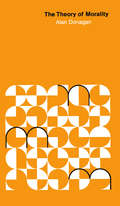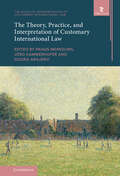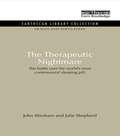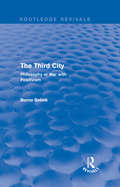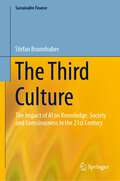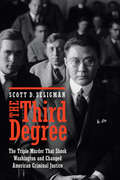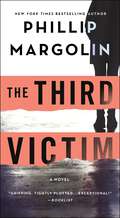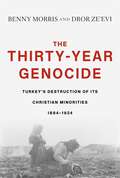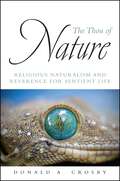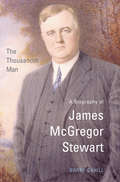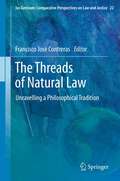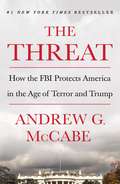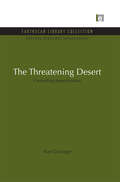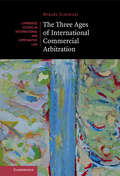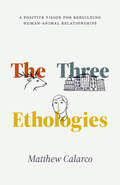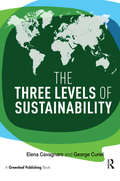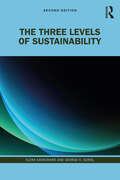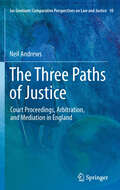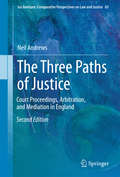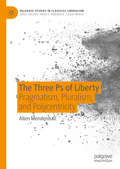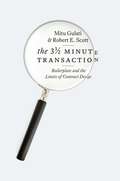- Table View
- List View
The Theory of Morality
by Alan Donagan"Let us . . . nominate this the most important theoretical work on ethical or moral theory since John Rawls's Theory of Justice. If you have philosophical inclinations and want a good workout, this conscientious scrutiny of moral assumptions and expressions will be most rewarding. Donagan explores ways of acting in the Hebrew-Christian context, examines them in the light of natural law and rational theories, and proposes that formal patterns for conduct can emerge. All this is tightly reasoned, the argument is packed, but the language is clear. "—Christian Century "The man value of this book seems to me to be that it shows the force of the Hebrew-Christian moral tradition in the hands of a creative philosopher. Throughout the book, one cannot but feel that a serious philosopher is trying to come to terms with his religious-moral background and to defend it against the prevailing secular utilitarian position which seems to dominate academic philosophy. "—Bernard Gert, Journal of Medicine and Philosophy
The Theory of Self-Determination (ASIL Studies in International Legal Theory)
by Tesón Fernando R.When can a group legitimately form its own state? Under international law, some groups can but others cannot. But the standard is unclear, and traditional legal analysis has failed to elucidate it. In The Theory of Self-Determination, leading scholars chart new territory in our theoretical conception of self-determination. Drawing from diverse scholarship in international law, philosophy, and political science, they attempt to move beyond the prevailing nationalist conceptions of group definition. At issue are such universal questions as: when does a group qualify as a 'people'? Does history matter? Or is it a question of ethnic status? Are these matters properly solved by popular vote? Anchored in modern analytical political philosophy but with implications for a wide range of scholarship, this volume will prove essential for scholars and practitioners of international law, global justice, and international relations. Offers a new take on self-determination that moves beyond prevailing nationalist conceptions The book's interdisciplinary approach, drawing on law, philosophy, and political science, will be of interest to a wide range of scholars and practitioners Applies philosophical foundations to recent cases from Scotland to the Ukraine
The Theory, Practice, and Interpretation of Customary International Law (The Rules of Interpretation of Customary International Law)
by Jörg Kammerhofer Noora Arajärvi Panos Merkouris Nina MilevaAlthough customary international law (CIL) has been central to international law from its inception, it is often misunderstood. This edited volume remedies that problem by tracing the history of CIL and provides an in-depth study of its theory, practice, and interpretation. Its chapters tackle the big questions which surround this source of international law such as: what are the rules that regulate the functioning of CIL as a source of international law? Can CIL be interpreted? Where do lines between identification, interpretation, application, and modification of a rule of CIL lie? Using recent developments, this volume revisits old debates and resolves them by proffering new and innovative solutions. With detailed examples from international and national courts, it places CIL in a range of settings to explain, explore and reflect upon this developing and highly significant field. This title is also available as Open Access on Cambridge Core.
The Therapeutic Nightmare: The battle over the world's most controversial sleeping pill (Health And The Environment Ser.)
by John Abraham Julie SheppardHow do drugs get to the market? What controls are there and what procedures for monitoring their effects? And how adequate are the regulators in protecting public health when new drugs have serious side effects? The Therapeutic Nightmare tells the story of the sleeping pill Halcion - a story which is far from over. First marketed in the 1970s, Halcion has been taken by millions of patients around the world. For many years it has been associated with serious adverse effects such as amnesia, hallucinations, aggression and, in extreme cases, homicide. Thirteen years after its first release, it was banned by the British government. It remains on sale in the United States and many other countries. This book explains why patients have come to be exposed to Halcion's risks and examines the corporate interests of the manufacturers, the professional interests of the scientists and medical researchers and the interests of patients in safe and effective medication. It reveals how these contending forces shape the regulatory decision-making process about drug safety. As the number of new drugs and health products grows, a major challenge facing regulators and the medical profession is how to put the interests of public health decisively and consistently above the commercial interests of the drugs industry, while becoming more accountable to patient and consumer organizations.
The Third City: Philosophy at War with Positivism (Routledge Revivals)
by Borna BebekThe Third City, first published in 1982, offers an innovative response to the troubled relationship between Western philosophy, as it has been conducted since the Renaissance, and the everyday lives of the communities in which we live. Bebek contends that the model of philosophical reflection is to be found in Plato’s dialogues, which, rather than simply describing utopia through a series of abstract ‘concepts’, were instead designed to impel the learner towards a recognition of the true nature of reality – as much a ‘self-recognition’ as an understanding of the world ‘out there’. Thus, in order to revive the spirit of true philosophy, it is necessary to avoid both the false extremes of idealism and materialism, and to allow ethics once more to merge with epistemology. This title presents an exposition of this ethically based philosophy, allowing the very human insights of Plato to illumine the diverse problems of today.
The Third Culture: The Impact of AI on Knowledge, Society and Consciousness in the 21st Century (Sustainable Finance)
by Stefan BrunnhuberWe are currently witnessing the emergence of a ‘third culture’, driven by unprecedented developments that are changing the playing field. These include advances in AI, big data analysis and robotics. The traditional ‘two cultures’ view (S. P. Snow) distinguishes between the sciences and the humanities. The wisdoms these two cultures offer are separated from each other, with little to no interaction or mutual comprehension. However, over the past two decades, and for the first time in human history, a new, third culture has appeared. This new culture, rooted in new technologies, not only pursues its own form of rationality but also supports advances in the original two cultures, deepening and expanding our individual and collective consciousness so that we can see more and do better. It will eventually give rise to new forms of consciousness based not on biochemical signals, but on copper wires and lithium chips. These new machine intelligences will change the world and force us to realise: we are no longer alone. The human species’ position in the twenty-first century will be fundamentally redefined: not as a conductor leading the orchestra, but a single string player within it.
The Third Degree: The Triple Murder That Shook Washington and Changed American Criminal Justice
by Scott D. SeligmanIf you’ve ever seen an episode of Law and Order, you can probably recite your Miranda rights by heart. But you likely don’t know that these rights had their roots in the case of a young Chinese man accused of murdering three diplomats in Washington DC in 1919. A frantic search for clues and dogged interrogations by gumshoes erupted in sensational news and editorial coverage and intensified international pressure on the police to crack the case. Part murder mystery, part courtroom drama, and part landmark legal case, The Third Degree is the true story of a young man’s abuse by the Washington police and an arduous, seven-year journey through the legal system that drew in Warren G. Harding, William Howard Taft, Oliver Wendell Holmes, John W. Davis, and J. Edgar Hoover. The ordeal culminated in a sweeping Supreme Court ruling penned by Justice Louis Brandeis that set the stage for the Miranda warning many years later. Scott D. Seligman argues that the importance of the case hinges not on the defendant’s guilt or innocence but on the imperative that a system that presumes one is innocent until proven guilty provides protections against coerced confessions. Today, when the treatment of suspects between arrest and trial remains controversial, when bias against immigrants and minorities in law enforcement continues to deny them their rights, and when protecting individuals from compulsory self-incrimination is still an uphill battle, this century-old legal spellbinder is a cautionary tale that reminds us how we got where we are today and makes us wonder how far we have yet to go.
The Third Victim: A Novel (Third Victim Ser. #1)
by Phillip Margolin"Margolin continues his return to the exceptional form of his early novels with this gripping, tightly plotted, and smoothly written legal thriller... A winner from a veteran genre author." —BooklistThe “master of heart-pounding suspense” returns with a brand new series and a USA Today bestseller?The Third Victim is New York Times bestseller Phillip Margolin at his very best.A woman stumbles onto a dark road in rural Oregon—tortured, battered, and bound. She tells a horrific story about being kidnapped, then tortured, until she finally managed to escape. She was the lucky one—two other women, with similar burns and bruises, were found dead. The surviving victim identifies the house where she was held captive and the owner, Alex Mason—a prominent local attorney—is arrested. Although he loudly insists upon his innocence, his wife’s statements about his sexual sadism and the physical evidence found at the scene, his summer home, is damning. Regina Barrister is a legendary criminal defense attorney, known as “The Sorceress” for her courtroom victories. But she’s got a secret, one that threatens her skill, her reputation, and, most of all, her clients. And she’s agreed to take on the seemingly impossible task of defending Alex Mason. Robin Lockwood, a young lawyer and former MMA fighter, has just left a clerkship at the Oregon Supreme Court to work for Regina Barrister. The Alex Mason trial is her first big one, a likely death penalty case, and she’s second chair to Regina. Increasingly, she’s worried her boss’s behavior and the details in the case against their client don’t quite add up.
The Thirteenth Amendment and American Freedom: A Legal History
by Alexander TsesisIn this narrative history and contextual analysis of the Thirteenth Amendment, slavery and freedom take center stage. Alexander Tsesis demonstrates how entrenched slavery was in pre-Civil War America, how central it was to the political events that resulted in the Civil War, and how it was the driving force that led to the adoption of an amendment that ultimately provided a substantive assurance of freedom for all American citizens. The story of how Supreme Court justices have interpreted the Thirteenth Amendment, first through racist lenses after Reconstruction and later influenced by the modern civil rights movement, provides insight into the tremendous impact the Thirteenth Amendment has had on the Constitution and American culture. Importantly, Tsesis also explains why the Thirteenth Amendment is essential to contemporary America, offering fresh analysis on the role the Amendment has played regarding civil rights legislation and personal liberty case decisions, and an original explanation of the substantive guarantees of freedom for today's society that the Reconstruction Congress envisioned over a century ago.
The Thirteenth Juror: An unputdownable thriller of violence, betrayal and lies (Dismas Hardy)
by John LescroartHe is obsessed with her innocence. He will be destroyed by her guilt...John Lescroart writes a gripping courtroom thriller delving deep into the life and mind of the suspect in The Thirteenth Juror, the fourth novel in the Dismas Hardy series. Perfect for fans of J.J. Miller and John Sandford. 'I double-dare you to begin reading John T. Lescroart's new suspense trial novel and put it down... This one is on the money' - Larry King, USA TodayDismas Hardy, lawyer/investigator, undertakes the defence of Jennifer Witt, accused of murdering her husband and their eight-year-old son as well as her first husband, who had died nine years earlier from an apparent drug overdose. While preparing his case, Hardy learns that both of Jennifer's husbands had physically abused her. But Jennifer refuses to allow a defence that presumes her guilt. She is not guilty, she claims. Hardy is now driven to seek an alternative truth a jury can believe. As the trial progresses, the complex truth itself begins to change, to bend, to fade in and out of focus as the clock keeps ticking on Jennifer's fate, until there seems only one person left to convince, and she is 'the 13th juror' - the judge. The 13th Juror is a stunning and suspenseful novel of moral ambiguity, of good intentions, bad judgements and the tortuous path to ultimate justice.What readers are saying about The Thirteenth Juror:'Intricate, multi-layered story that goes way beyond the basics''It was hard to put this book down!''Keeps you on the edge of your seat until the end'
The Thirty-Year Genocide: Turkey’s Destruction of Its Christian Minorities, 1894–1924
by Benny Morris Dror Ze’eviFrom 1894 to 1924 three waves of violence swept across Anatolia, targeting the region’s Christian minorities. Benny Morris and Dror Ze’evi’s impeccably researched account is the first to show that the three were actually part of a single, continuing, and intentional effort to wipe out Anatolia’s Christian population and create a pure Muslim nation.
The Thou of Nature: Religious Naturalism and Reverence for Sentient Life
by Donald A. CrosbyHumans share the earth with nonhuman animals who are also capable of conscious experience and awareness. Arguing that we should develop an I-thou, not an I-it, relationship with other sentient beings, Donald A. Crosby adds a new perspective to the current debates on human/animal relations and animal rights—that of religious naturalism. Religion of Nature holds that the natural world is the only world and that there is no supernatural animus or law behind it. From this vantage point, our fellow thous are entitled to more than merely moral treatment: protection and enhancement of their continuing well-being deserves to be a central focus of religious reverence, care, and commitment as well. A set of presumptive natural rights for nonhuman animals is proposed and conflicts in applying these rights are acknowledged and considered. A wide range of situations involving humans and nonhuman animals are discussed, including hunting and fishing; eating and wearing; circuses, rodeos, zoos, and aquariums; scientific experimentation; and the threats of human technology and population growth.
The Thousandth Man
by Barry CahillJames McGregor Stewart (1889-1955) was perhaps the foremost Canadian corporate lawyer of his day. He was also an appellate counsel, venture capitalist, Conservative Party fundraiser, bibliographer of Rudyard Kipling, and sometime university teacher of classics. A leader of the bar in the inter-war period, he was the first Maritimer to serve as president of the Canadian Bar Association. He distinguished himself mainly in constitutional cases before the Judicial Committee of the Privy Council. During his career, Stewart was also head of the leading law firm in eastern Canada (now Stewart McKelvey Stirling Scales), director and vice-president of the Royal Bank of Canada, and senior counsel to the Royal Commission on Dominion-Provincial Relations.Above all, Stewart was committed to the idea of law as a truly learned profession and to the bar as the most important legal institution. To this day, no lawyer has held such prestige and power both within and outside Atlantic Canada; in his time he was the only Maritime lawyer who gained full acceptance by every branch of the Canadian establishment.Thematic rather that chronological in approach, this fascinating legal biography provides both a history of a uniquely Canadian career and an interpretation of its significance for Stewart's time and ours.
The Threads of Natural Law
by Francisco José ContrerasThe notion of "natural law" has repeatedly furnished human beings with a shared grammar in times of moral and cultural crisis. Stoic natural law, for example, emerged precisely when the Ancient World lost the Greek polis, which had been the point of reference for Plato's and Aristotle's political philosophy. In key moments such as this, natural law has enabled moral and legal dialogue between peoples and traditions holding apparently clashing world-views. This volume revisits some of these key moments in intellectual and social history, partly with an eye to extracting valuable lessons for ideological conflicts in the present and perhaps near future. The contributions to this volume discuss both historical and contemporary schools of natural law. Topics on historical schools of natural law include: how Aristotelian theory of rules paved the way for the birth of the idea of "natural law"; the idea's first mature account in Cicero's work; the tension between two rival meanings of "man's rational nature" in Aquinas' natural law theory; and the scope of Kant's allusions to "natural law". Topics on contemporary natural law schools include: John Finnis's and Germain Grisez's "new natural law theory"; natural law theories in a "broader" sense, such as Adolf Reinach's legal phenomenology; Ortega y Gasset's and Scheler's "ethical perspectivism"; the natural law response to Kelsen's conflation of democracy and moral relativism; natural law's role in 20th century international law doctrine; Ronald Dworkin's understanding of law as "a branch of political morality"; and Alasdair Macintyre's "virtue"-based approach to natural law.
The Threat: How the FBI Protects America in the Age of Terror and Trump
by Andrew G. McCabeThe Instant #1 New York Times Bestseller!On March 16, 2018, just twenty-six hours before his scheduled retirement from the organization he had served with distinction for more than two decades, Andrew G. McCabe was fired from his position as deputy director of the FBI. President Donald Trump celebrated on Twitter: "Andrew McCabe FIRED, a great day for the hard working men and women of the FBI - A great day for Democracy."In The Threat: How the FBI Protects America in the Age of Terror and Trump, Andrew G. McCabe offers a dramatic and candid account of his career, and an impassioned defense of the FBI's agents, and of the institution's integrity and independence in protecting America and upholding our Constitution.McCabe started as a street agent in the FBI's New York field office, serving under director Louis Freeh. He became an expert in two kinds of investigations that are critical to American national security: Russian organized crime—which is inextricably linked to the Russian state—and terrorism. Under Director Robert Mueller, McCabe led the investigations of major attacks on American soil, including the Boston Marathon bombing, a plot to bomb the New York subways, and several narrowly averted bombings of aircraft. And under James Comey, McCabe was deeply involved in the controversial investigations of the Benghazi attack, the Clinton Foundation's activities, and Hillary Clinton's use of a private email server when she was secretary of state.The Threat recounts in compelling detail the time between Donald Trump's November 2016 election and McCabe's firing, set against a page-turning narrative spanning two decades when the FBI's mission shifted to a new goal: preventing terrorist attacks on Americans. But as McCabe shows, right now the greatest threat to the United States comes from within, as President Trump and his administration ignore the law, attack democratic institutions, degrade human rights, and undermine the U.S. Constitution that protects every citizen. Important, revealing, and powerfully argued, The Threat tells the true story of what the FBI is, how it works, and why it will endure as an institution of integrity that protects America.
The Threatening Desert: Controlling desertification (Natural Resource Management Set #3)
by Alan GraingerLands lost to desert may effectively be lost for ever, so desertification is humanity's most obvious despoliation to the planet. It is certainly one of the most serious environmental problems facing the world today. In this book the author describes what is happening and where. Although the problem is greatest in developing countries, it is by no means confined to them. Australia, Africa, the USA and India are all affected. In the 1970s an international Plan of Action was drawn up to bring the phenomenon under control, but it was never implemented. Now that the situation is more serious than ever before, this book urges new action and describes many of the myriad ways in which it is possible to arrest the progress of desertification. It describes, too, not just the failures, but the considerable successes that have been achieved. Originally published in 1990
The Three Ages of International Commercial Arbitration (Cambridge Studies in International and Comparative Law)
by Mikaël SchinaziDrawing on a wide range of previously unpublished sources, this unique history of international commercial arbitration in the modern era identifies three periods in its development: the Age of Aspirations (c. 1780–1920), the Age of Institutionalization (1920s–1950s), and the Age of Autonomy (1950s–present). Mikaël Schinazi analyzes the key features of each period, arguing that the history of international commercial arbitration has oscillated between moments of renewal and anxiety. During periods of renewal, new approaches, instruments, and institutions were developed to carry international commercial arbitration forward. These developments were then reined in during periods of anxiety, for fear that international arbitration might be overstepping its bounds. The resulting tension between renewal and anxiety is a key thread running through the evolution of international commercial arbitration. This book fills a key gap in the scholarship for anyone interested in the fields of international arbitration, legal history, and international law.
The Three Ethologies: A Positive Vision for Rebuilding Human-Animal Relationships (Animal Lives)
by Matthew CalarcoA transformative vision for human-animal relations on personal, social, and environmental levels. The Three Ethologies offers a fresh, affirmative vision for rebuilding human-animal relations. Venturing beyond the usual scholarly and activist emphasis on restricting harm, Matthew Calarco develops a new philosophy for understanding animal behavior—a practice known as ethology—through three distinct but interrelated lenses: mental ethology, which rebuilds individual subjectivity; social ethology, which rethinks our communal relations; and environmental ethology, which reconfigures our relationship to the land we co-inhabit with our animal kin. Drawing on developments in philosophy, (eco)feminist theory, critical geography, Indigenous studies, and the environmental humanities, Calarco casts an inspiring vision of how ethological living can help us to reimagine our ideas about goodness, truth, and beauty.
The Three Levels of Sustainability
by Elena Cavagnaro George H | CurielThis book aims to provide the missing link in current debates around sustainability. The role of business, governments, NGOS and multilateral institutions are widely covered and many books discuss their possible actions, strategies and roles. But all of these organizations are made up of individuals. And it is individuals who will need to steer society and organizations toward a more just and equitable world.The book takes a holistic approach to sustainable development. The authors argue that this approach starts and ends with the human being. They believe that the personal dimension of sustainable development has been neglected and that it is clear that sustainable societies cannot be achieved without committed individuals who are convinced of the need to be part of the sustainability project.The authors frame their ideas around the Three Levels of Sustainability (TLS) framework which they argue addresses at least some of the weaknesses inherent in a fragmented approach to sustainability. Their approach encompasses societal, organizational and individual levels; and, by looking through the lens of how sustainability has evolved, provides a roadmap for producing the kind of leaders necessary for sustainable development in all of its dimensions – people, planet and profit. The focus on how the individual can contribute to these three dimensions is unique.To arrive at this multi-level and multi-dimensional framework, the book introduces and analyzes theories from sustainable development, corporate social responsibility and personal leadership and systemically looks for linkages between them that are useful for sustainability.This framework is placed firmly in its historical context. The authors are highly literate about the development and interpretations of sustainability and bring us to their current position via informed discussions on the history of economics, business-and-environment, social development, the corporation and the profit principle, CSR, and measurement and reporting.The book has been designed as both a text for students as well as those already in management and leadership positions in the private, public or non-profit sectors and will also prove invaluable to those wishing to familiarize themselves with sustainability.
The Three Levels of Sustainability
by Elena Cavagnaro George H. CurielUnderstanding the complexity of sustainability is crucial for the leadership of business organizations, national governments, and non-governmental organizations. This second edition of the bestselling book The Three Levels of Sustainability uses the same interdependent three-level and three-dimensional framework as the first edition, encompassing societal, organizational, and individual levels, to clearly demonstrate what sustainability means and how to implement it. This new edition incorporates important developments in reporting and measuring, corporate behaviors, the impact of COVID-19, and the UN Sustainable Development Goals. More and more societies are becoming aware of their dependence on earth’s resources. However, there is still a deep-rooted lack of awareness of the connection between society’s ambitions for economic growth, earth’s limitations, and unequal distribution of wealth. Prominent institutions and organizations and their leaders rely on the conformable belief that "more quantity" equals "more quality" and that "more growth" equals "more development". Although some progress has been made since the publication of the first edition, the world is increasingly characterized by division, rising dissatisfaction, and growing inequality between countries, communities, and people. At the same time, it is anticipated that global warming will reach a point of no return between 2030 and 2052. The fundamental paradigm shift in the way the development process must be navigated is better served by a holistic and inclusive, multilevel and multidimensional approach meant to gradually align the critical institutional and individual factors essential to the pathway toward sustainable development. The book has been established as an excellent primer to explain the complex issues around sustainability for postgraduate and undergraduate students, as well as busy professionals and those already in management and leadership positions in the private, public, or non-profit sectors.
The Three Lives of James Madison: Genius, Partisan, President
by Noah FeldmanA sweeping reexamination of the Founding Father who transformed the United States in each of his political “lives”—as a revolutionary thinker, as a partisan political strategist, and as a president“In order to understand America and its Constitution, it is necessary to understand James Madison.”—Walter Isaacson, #1 New York Times bestselling author of Leonardo da Vinci Over the course of his life, James Madison changed the United States three times: First, he designed the Constitution, led the struggle for its adoption and ratification, then drafted the Bill of Rights. As an older, cannier politician he co-founded the original Republican party, setting the course of American political partisanship. Finally, having pioneered a foreign policy based on economic sanctions, he took the United States into a high-risk conflict, becoming the first wartime president and, despite the odds, winning. In The Three Lives of James Madison, Noah Feldman offers an intriguing portrait of this elusive genius and the constitutional republic he created—and how both evolved to meet unforeseen challenges. Madison hoped to eradicate partisanship yet found himself giving voice to, and institutionalizing, the political divide. Madison’s lifelong loyalty to Thomas Jefferson led to an irrevocable break with George Washington, hero of the American Revolution. Madison closely collaborated with Alexander Hamilton on the Federalist papers—yet their different visions for the United States left them enemies. Alliances defined Madison, too. The vivacious Dolley Madison used her social and political talents to win her husband new supporters in Washington—and define the diplomatic customs of the capital’s society. Madison’s relationship with James Monroe, a mixture of friendship and rivalry, shaped his presidency and the outcome of the War of 1812. We may be more familiar with other Founding Fathers, but the United States today is in many ways Madisonian in nature. Madison predicted that foreign threats would justify the curtailment of civil liberties. He feared economic inequality and the power of financial markets over politics, believing that government by the people demanded resistance to wealth. Madison was the first Founding Father to recognize the importance of public opinion, and the first to understand that the media could function as a safeguard to liberty. The Three Lives of James Madison is an illuminating biography of the man whose creativity and tenacity gave us America’s distinctive form of government. His collaborations, struggles, and contradictions define the United States to this day.
The Three Paths of Justice
by Neil AndrewsThis book presents a concise account of the English system of civil litigation, covering court proceedings in England and Wales. It is an original and important study of a system which is the historical root of the US litigation system. The volume offers a comprehensive and properly balanced account of the entire range of dispute resolution techniques. As the first book on this subject to be published in the USA, it enables American lawyers to gain an overview of the main institutions of English Civil Procedure, including mediation and arbitration. It will render the English system of civil justice accessible to law students in the US, practitioners of law, professors, judges, and policy-makers.
The Three Paths of Justice: Court Proceedings, Arbitration, And Mediation In England (Ius Gentium: Comparative Perspectives on Law and Justice #10)
by Neil AndrewsThis revised second edition takes account of developments in the field of dispute resolution, including mediation and arbitration. The book presents a concise account of the English system of civil litigation, covering court proceedings in England and Wales. It is an original and important study of a system which is the historical root of the US litigation system. The volume offers a comprehensive and properly balanced account of the entire range of dispute resolution techniques. As the first (revised) book on this subject to be published in the USA, it enables American lawyers to gain an overview of the main institutions of English Civil Procedure, including mediation and arbitration. It will render the English system of civil justice accessible to law students in the US, practitioners of law, professors, judges, and policy-makers.
The Three Ps of Liberty: Pragmatism, Pluralism, and Polycentricity (Palgrave Studies in Classical Liberalism)
by Allen MendenhallThis book considers the “three Ps” of liberty: pragmatism, pluralism, and polycentricity. These concepts enrich the complex tradition of classical liberal jurisprudence, providing workable solutions based on the decentralization, diffusion, and dispersal of power.
The Three and a Half Minute Transaction: Boilerplate and the Limits of Contract Design
by Mitu Gulati Robert E. ScottBoilerplate language in contracts tends to stick around long after its origins and purpose have been forgotten. Usually there are no serious repercussions, but sometimes it can cause unexpected problems. Such was the case with the obscure pari passu clause in cross border sovereign debt contracts, until a novel judicial interpretation rattled international finance by forcing a defaulting sovereign for one of the first times in the market's centuries long history to repay its foreign creditors. Though neither party wanted this outcome, the vast majority of contracts subsequently issued demonstrate virtually no attempt to clarify the imprecise language of the clause. Using this case as a launching pad to explore the broader issue of the "stickiness " of contract boilerplate, Mitu Gulati and Robert E. Scott have sifted through more than one thousand sovereign debt contracts and interviewed hundreds of practitioners to show that the problem actually lies in the nature of the modern corporate law firm. The financial pressure on large firms to maintain a high volume of transactions contributes to an array of problems that deter innovation. With the near certainty of massive sovereign debt restructuring in Europe, The Three and a Half Minute Transaction speaks to critical issues facing the industry and has broader implications for contract design that will ensure it remains relevant to our understanding of legal practice long after the debt crisis has subsided.
